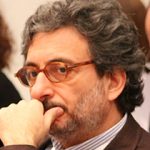How much structural transformation has taken place in Euromed countries over the past few decades? What has been the role of industrial policy or lack thereof in the transformation process? More importantly, can industrial policy play a role in the economic transformation of MENA countries in the future?
A recent research project undertaken by the Economic Research Forum (ERF) explores patterns of structural change and industrial policy in four Euromed economies: Egypt, Morocco, Tunisia and Turkey.1 Structural transformation is broadly defined as the reallocation of resources from low productivity activities (traditionally identified with agriculture) to high productivity activities (industry and services). Following Pack and Saggi (2006), industrial policy may be defined as “selective intervention” that aims to alter the structure of production “toward sectors that are expected to offer better prospects for economic growth.”
Structural change is important because it constitutes one of the main ingredients of economic development. Reallocation is expected to generate higher overall productivity and therefore higher incomes. The second ingredient of economic development has been called “the development of fundamental capabilities in the form of human capital and institutions” by Rodrik (2013). These include factors such as education, good governance and regulatory frameworks that address market failures. Rodrik argues that even though long-term growth ultimately depends on the development of these capabilities, the latter are characterized by high set-up costs and take time to develop. Until they do, high growth is likely to depend primarily on structural change, and, in particular, on industrialization.
This Policy Perspective first reviews patterns of structural change in the four countries covered in the project. It then reviews the project’s findings on the role of industrial policy. It concludes with a discussion of the future potential of industrial policy in promoting economic development.

Research Fellows
Izak Atiyas
Associate Professor of Economics, Faculty of Arts...


